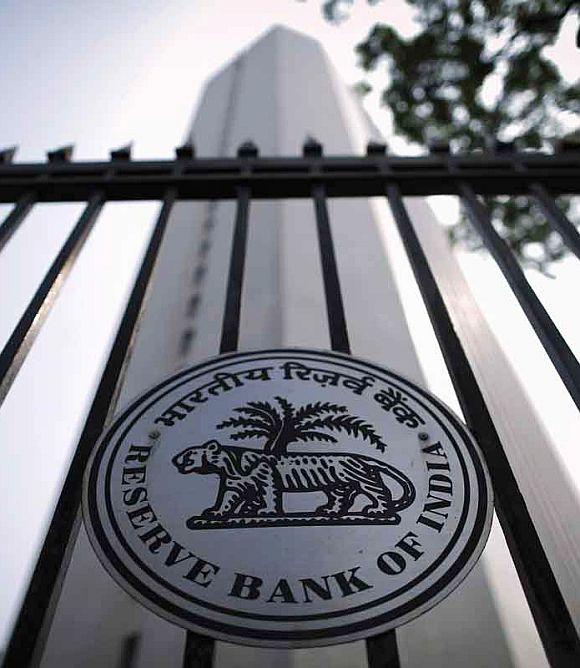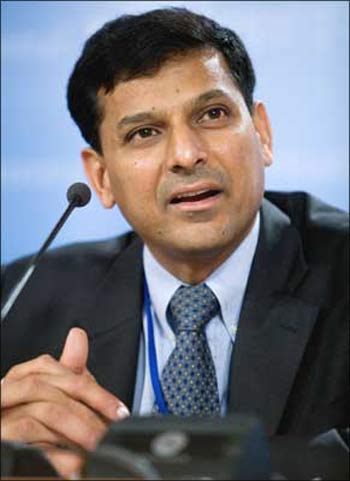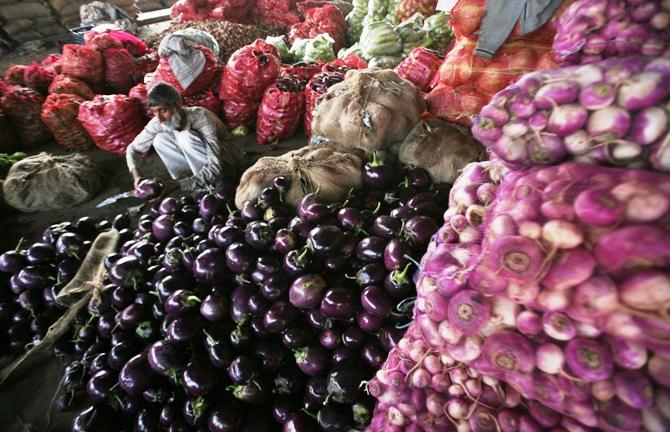 | « Back to article | Print this article |
RBI surprises by keeping interest rates on hold
India's central bank unexpectedly kept its policy interest rate on hold on Wednesday, yet maintained its tough rhetoric against surging inflation, warning it would act any time needed even if the economy continues to struggle.
The Reserve Bank of India's decision to keep the repo rate at 7.75 percent surprised investors, who had widely expected the central bank to hike the country's main lending rate after raising it by a quarter percentage point each at its previous reviews in September and October.
Instead, the RBI noted that prices of vegetables, which are driving inflation higher, have started easing, while highlighting "the weak state" of the economy and the uncertainty posed by a possible withdrawal in U.S. monetary stimulus as key reasons behind keeping rates on hold.
However, the central bank described Wednesday's decision as "a close one". It said it would remain vigilant on inflation and that it would be ready to act even in between policy reviews should headline or core inflation not ease as expected - although noting it would do so in a "calibrated" manner.
RBI Governor Raghuram Rajan has made fighting inflation a priority since his appointment in September, in a welcome reprieve to the embattled Congress party, which is facing general elections due by May, and has been hit hard in recent state polls by high food prices.
Click NEXT to read more...
RBI surprises by keeping interest rates on hold
'NOT SOFT ON INFLATION'
The decision to leave rates on hold, despite the strong warnings against inflation, could provide some relief to businesses and investors, who are clamouring for more steps to revive an economy growing even below the decade-low of 5 percent in the previous fiscal year.
"I want to emphasise we are not being soft on inflation," Rajan told reporters at a news briefing after the decision. "We are waiting for data. I also want to emphasise that it shouldn't be taken that we're on hold. We are waiting for data. Hence as the data come in, we will react appropriately."
The benchmark 10-year bond yield dropped as much as 15 basis points to 8.76 percent from its previous close, while the NSE share index gained more than 1.4 percent. The Indian rupee strengthened slightly from levels before the decision.
Some analysts said they expect the RBI would raise interest rates by at most another quarter percentage point in the next few months, but not at its next policy review on Jan. 28.
Wholesalers say vegetable prices have eased this month, a relief after the most recent data showed consumer prices in November posted their biggest annual rise on record - 11.24 percent - while wholesale inflation hit a 14-month high last month.
"Given that core CPI inflation is stable and food inflation is expected to come down, we expect the RBI to remain on hold in the next policy meeting. However, we expect another 25 basis points hike going ahead," said Abheek Barua, chief economist for HDFC Bank in New Delhi.
Click NEXT to read more...
RBI surprises by keeping interest rates on hold
HEART OF THE BATTLE
At the heart of India's surging inflation are the prices of vegetables such as onions and potatoes, which disproportionately hit the country's poor, traditionally key voters for the Congress party.
However, analysts have expressed doubts about the effectiveness of monetary policy in curbing vegetable prices, whose jump has been driven by India's poor infrastructure and transportation methods.
Food prices can also be volatile, making the outlook for interest rates hard to discern.
"I think what we are saying is we will not react to every spike in inflation that is temporary. Monetary policy, after all, operates with long lags, three to four quarters," Rajan said.
Click NEXT to read more...
RBI surprises by keeping interest rates on hold
"We are basically looking through spikes and seeing a longer term movement which we hope will be reflected in the next round of data," the governor said.
The pause in rate hikes could raise hopes for a faster recovery in economic growth.
Despite recent signs the economy may be bottoming out, growth remains far below the annual levels of around 8 percent the government says are needed to reduce poverty and generate jobs.
The RBI's decision to keep rates on hold came only hours before the conclusion of a U.S. Federal Reserve policy meeting. Any decision to start withdrawing its monetary stimulus would raise concerns about a repeat of August, when fears of this sparked outflows that made the rupee plunge to a record low.
Under Rajan, the RBI has rolled back most of the emergency steps taken in July and August to prop up the rupee, which included raising short-term interest rates.
In its statement, the central bank said: "There are obvious risks to waiting for more data, including the possibility that tapering of quantitative easing by the U.S. Fed may disrupt external markets and that the Reserve Bank may be perceived to be soft on inflation. The Reserve Bank will be vigilant."
(Additional reporting by Swati Bhat and the Mumbai markets team)

© Copyright 2025 Reuters Limited. All rights reserved. Republication or redistribution of Reuters content, including by framing or similar means, is expressly prohibited without the prior written consent of Reuters. Reuters shall not be liable for any errors or delays in the content, or for any actions taken in reliance thereon.



